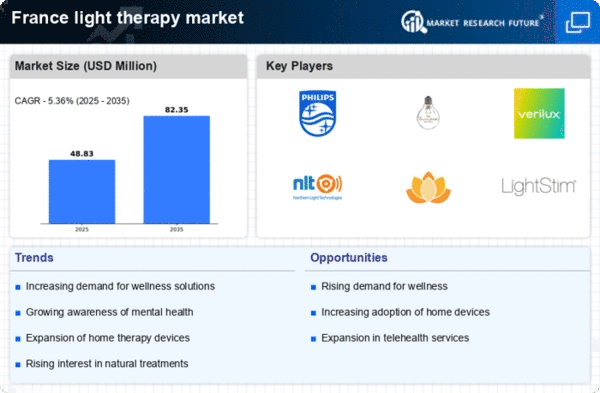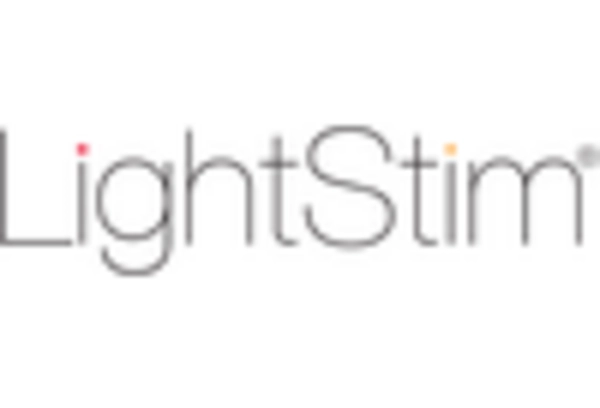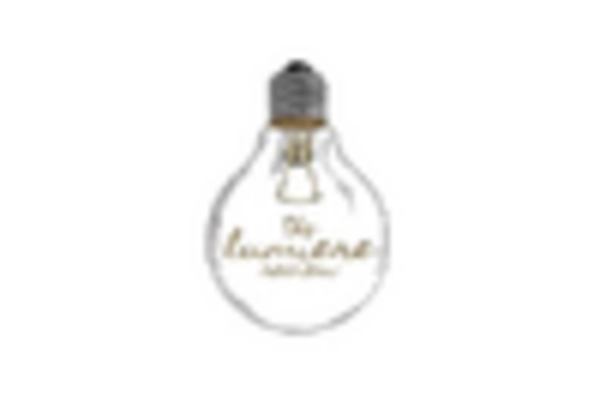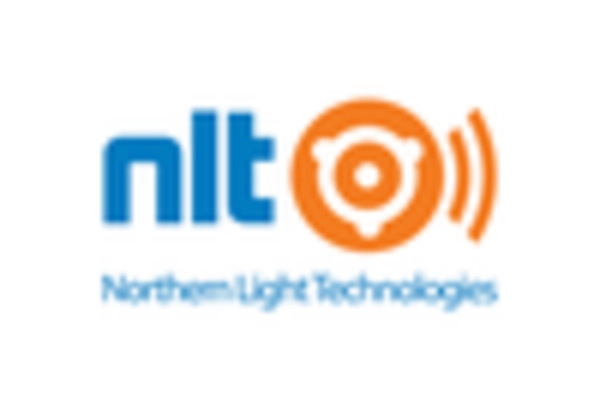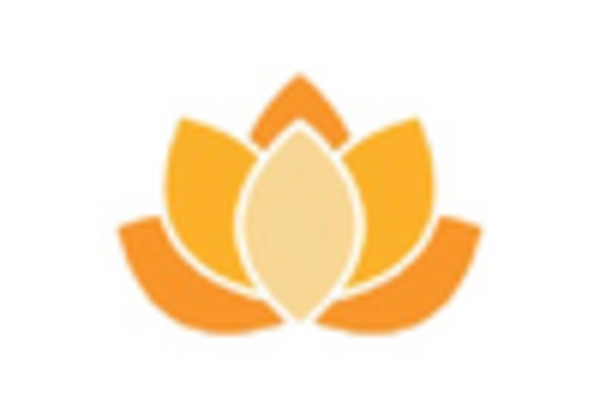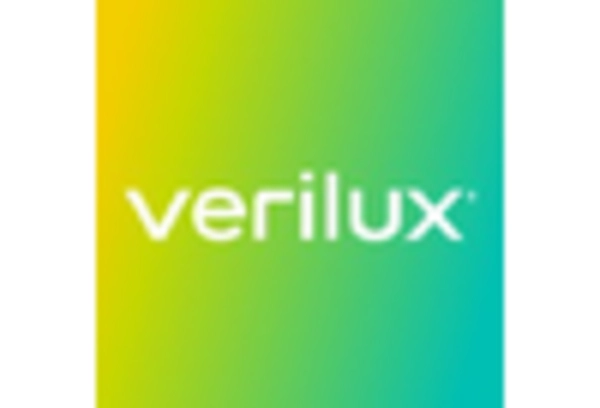Government Support and Regulation
Government initiatives in France are playing a crucial role in shaping the light therapy market. Regulatory bodies are increasingly recognizing the therapeutic benefits of light therapy, leading to the establishment of guidelines that promote its safe use. This regulatory support not only enhances consumer confidence but also encourages manufacturers to innovate and expand their product offerings. Furthermore, public health campaigns aimed at raising awareness about mental health and skin disorders are likely to bolster the market. The light therapy market stands to gain from these supportive measures, as they facilitate greater acceptance and integration of light therapy into mainstream healthcare practices.
Rising Incidence of Mood Disorders
The increasing prevalence of mood disorders in France is a critical driver for the light therapy market. Studies indicate that conditions such as depression and anxiety are on the rise, prompting a search for effective treatment options. Light therapy has emerged as a viable alternative, particularly for individuals suffering from seasonal affective disorder (SAD). The light therapy market is expected to expand as healthcare providers recommend this treatment modality to patients seeking relief from mood-related issues. This growing recognition of light therapy as a legitimate therapeutic option is likely to enhance its adoption across various demographics.
Technological Innovations in Devices
Technological advancements are significantly influencing the light therapy market in France. Innovations in device design and functionality are making light therapy more effective and user-friendly. For instance, the introduction of portable and wearable devices has expanded the accessibility of light therapy, allowing users to incorporate it into their daily routines. Additionally, advancements in LED technology have improved the efficacy of treatments, making them more appealing to consumers. The light therapy market is likely to see continued growth as these innovations attract a broader audience, particularly among younger demographics who are more inclined to adopt new technologies.
Increasing Demand for Non-Invasive Treatments
The light therapy market in France is experiencing a notable surge in demand for non-invasive treatment options. As consumers become more health-conscious, they are increasingly seeking alternatives to traditional medical interventions. This trend is particularly evident in the treatment of seasonal affective disorder (SAD) and skin conditions, where light therapy has shown promising results. According to recent data, the market is projected to grow at a CAGR of approximately 8% over the next five years. This growth is driven by the rising preference for at-home therapies, which offer convenience and accessibility. The light therapy market is thus positioned to benefit from this shift towards non-invasive solutions, as more individuals opt for treatments that align with their lifestyle choices.
Integration of Light Therapy in Holistic Health Approaches
The light therapy market in France is increasingly being integrated into holistic health approaches, reflecting a broader trend towards comprehensive wellness solutions. As consumers seek to improve their overall well-being, light therapy is being recognized for its potential benefits beyond traditional medical applications. This integration is evident in wellness centers and spas that offer light therapy as part of their services. The light therapy market is poised for growth as more individuals embrace holistic health practices, viewing light therapy as a complementary treatment that enhances physical and mental health.


